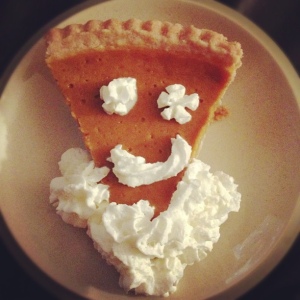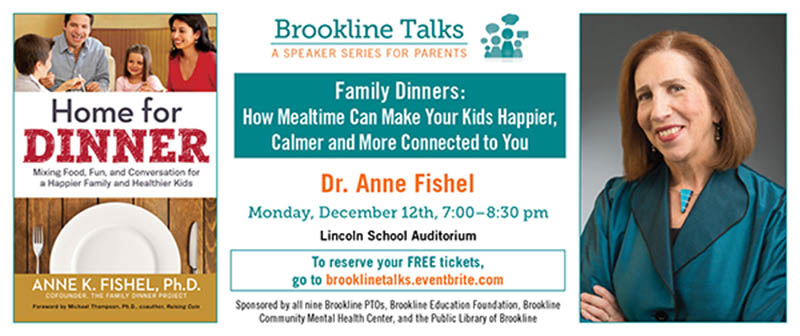My take as a family therapist about the Fishes episode
There is no shortage of compelling holiday movies but for me, as a family therapist, the most riveting hour of holiday content is the Fishes episode of the series, “The Bear.” For those unfamiliar with the Hulu series, “The Bear” tells the story of an Italian-American family in Chicago, trying to transform their old-school sandwich joint into a high-end restaurant, after the suicide of one of the sons. The Fishes episode takes place on Christmas Eve when the matriarch of the family, Donna, is making the traditional Italian-American meal, The Feast of the Seven Fishes, while complaining drunkenly and bitterly that no one is helping or appreciating her. The episode vividly portrays a family dealing with addiction and mental health issues, interlaced with equal helpings of deep affection and going-for-the-jugular conflict.
Spoiler Alert! Over the course of an hour, the dinner careens toward total disaster with forks flying, unwashed pots and pans toppling off the counters, timers going off, sauce splattering everywhere, and the intoxicated, martyred Donna, ending the episode by crashing her car into the dining room. Still, there are moments of tenderness and grace offered during the melee, and there are important lessons to be gleaned for all of us trying to create meaningful and delicious traditions, without getting mired in perfectionism, clinging to tired rituals, and burdening one person with all the work.
The Takeaways:
- The pressure to make holidays perfect is toxic. Donna, the matriarch, sets about performing an impossible task—getting seven fish dishes to all come out perfectly cooked at the same time. She knows she’s in over her head and angrily asks for help, but before anyone can lend a hand, she laments that nobody is helping her.
It’s as though her worth as a mother is riding on her ability to complete this impossible feat all by herself. Asking for and accepting help would mean that she has somehow failed. (Perhaps she also takes some perverse pleasure in martyring it up.) She complains, “I have to do everything for everyone.” And later she says, “I make things beautiful for them and no one makes things beautiful for me.”
Who hasn’t been to a holiday meal where the host is grumpy, bedraggled, and joyless from the effort of single-handedly mounting a multi-course meal for a crowd? Asking for and graciously accepting help is a gift to all as it makes everyone feel part of the festivities. In the words of one character, “It’s a chance to be together and take care of each other…..We’re going to have to chew more, and we have to listen more. And we only get do this tonight, one time.”
Instead of letting one person do all the cooking, make sure to invite each guest to play a role in food preparation, serving, cleaning-up, table-scaping, play-list creating, and game choosing, so that the holiday belongs to all.
- Stories need to be told and retold, and holidays are a great place to do this. The family heat really gets cranking when one family member expresses his exasperation at the retelling of a story that everyone has heard many times before. But isn’t this one of the great joys of a holiday dinner, to review some favorite stories so that they get etched in the collective memory of the family? And in the retelling, stories are rarely told the same way twice. New details are recalled, others are embellished, and still others may be added to make the story more colorful. How I wish I could hear my father tell the story again of parachuting his dog out of a plane during WWII. While he’s no longer here to tell the story himself, any one of my family can give a lively rendition of that story after hearing it told so many times. In the retelling, we remember the storyteller as well as the story.
Instead of muzzling a storyteller for repeating a well-known story, invite the telling. As a bonus, children who know their family stories gain resilience and self-esteem from knowing that they are part of something bigger than themselves.
- Family members can be experts at pushing our buttons. Who knows better how to get a rise out of you than your siblings, parents, and other relatives? In this episode the matriarch’s daughter, “Sugar” (unkindly given that name by her mother because she once put a cup of sugar instead of salt into the holiday gravy), repeatedly asks her mother if she is OK. It’s a fair question because Donna is decompensating in plain sight as she guzzles wine and breaks into sobbing fits. But the question enrages Donna so much she smashes a platter: Sugar’s question targets her mother’s vulnerability and that is the last thing that Donna wants to acknowledge. Questions about weight, lack of employment, plans to have a child or more children, are all potentially incendiary trigger questions that are best avoided.
Instead, bring a fresh curious question to ask, or be prepared to deflect an annoying probe with a disarming response, “Why do you ask? I wonder if you’re OK.”
If you watch the Fishes episode, you will likely identify with some of the family dynamics and roles. A burdened host who is help-rejecting, a pestering uncle who tries to provoke, a family member whose holiday drinking brings on uninhibited anger and tears are all common tropes. The episode may also leave you feeling grateful that your family holidays don’t end up with a car plowed through the dining room and forks chucked near an annoying uncle’s head.
Instead, If I could have counseled the Berzatto family, I would have given this advice: Go ahead and tell those family stories you’ve all heard a million times, ask and offer help so that the holiday belongs to everyone, and bring some interesting, novel conversation starters to avoid slipping into asking lazy, provocative questions. I’d raise the importance of substance use treatment for Donna and a full mental health evaluation for the fork slinger at another time.
Hey, pass the fish, wouldja?
Try these conversation starters inspired by “The Bear”:
- What’s one traditional holiday food you couldn’t do without? What’s one that you think we could skip this year?
- If you could wave a magic wand and get help with one aspect of the holidays, what would you choose and why?
- What’s your favorite family legend to tell and retell? What’s one family story you wish you knew more about?
- What holiday moment would you like to be able to “do over?” What’s one you wish you could relive each year?
- If you could have any friend or family member, living or dead, at your holiday table this year, who would it be? What would you want to talk about?
An earlier version appeared on thefamilydinnerproject.org
Dr. Fishel on CNN with Chef Michael Scelfo
Talk at ‘Brookline Talks’: “Family Dinners: How Mealtime can make your Kids Happier, Calmer and More Connected to You”
Upcoming talk about technology at the table
This Tuesday, Dec. 6 at 3 PM, Dr. Anne Fishel will be joining Understood Expert Chat along with Tali Horowitz from Common Sense Media to discuss technology at the table. Join if you can!
Dr. Fishel at the 92Y’s Parenting Conference
Dr. Fishel talked about the importance of story-telling at the dinner table at the 92Y’s annual parenting conference on April 17, 2016. The conference was entitled, “Parenting: What you Bring to the Table,” and also featured Drs. Michael Thompson and Kyle Pruett, as well as the actor Hank Azaria on fatherhood.
She was featured in a Q and A in New York Family about her talk: http://www.newyorkfamily.com/why-family-dinners-are-so-important/
Dr. Fishel interviewed on NPR’s The Takeaway on January 28, 2016
The Greenfield, MA Recorder Covers Dr. Fishel’s Visit
 After Dr. Fishel’s recent lecture to Communities that Care in Franklin County, MA, the local news recapped her visit with an article in the Greenfield Recorder.
After Dr. Fishel’s recent lecture to Communities that Care in Franklin County, MA, the local news recapped her visit with an article in the Greenfield Recorder.
As the article relates, “In Franklin County, the most recent annual survey of teens shows that 58 percent of teens report that they have dinner with their families four or more nights a week — and that among those teens, there’s a dramatic correlation with lower use of alcohol, cigarettes and marijuana, a lower risk of depression and stronger connections with parents, along with a higher consumption of fruit.” Building upon that local research and the numerous other studies that have shown the benefits of family dinner for both children and adults, Dr. Fishel gave a talk to school and human services workers who deal directly with families to encourage them to help their clients make dinnertime a priority.
Read the account of Dr. Fishel’s lecture and community dinner in The Greenfield Recorder.
Dr. Fishel on the Live Happy Podcast
 Recently, Dr. Fishel was honored to appear as a guest on the Live Happy podcast, talking about family dinners and discussing her book with listeners. In the episode, Dr. Fishel offers research, wisdom and advice about:
Recently, Dr. Fishel was honored to appear as a guest on the Live Happy podcast, talking about family dinners and discussing her book with listeners. In the episode, Dr. Fishel offers research, wisdom and advice about:
- Why regular family dinners are great for the body, brain and the spirit
- Tips for thriving conversation around the dinner table
- Why playing with your food is beneficial to mental health
- Ideas to overcome picky eaters, busy schedules and tension at the table
Listen to the podcast on the Live Happy site.
Five Myths About Family Dinners
 Each year, more than 9 in 10 Americans gather around the table with family and friends for Thanksgiving. But only 50 percent of us eat with our family on a regular basis. That’s too bad. Twenty years of research has shown that family dinners are great for the brain (enhancing preschool vocabulary and raising test scores), body (improving cardiovascular health in teens and lowering the odds of obesity) and spirit (reducing rates of behavioral problems, stress and substance abuse). But in extolling the virtues of the family dinner, we may have obscured what the meal is actually about and why it serves parents and children. In that gap lies a thick stew of myths.
Each year, more than 9 in 10 Americans gather around the table with family and friends for Thanksgiving. But only 50 percent of us eat with our family on a regular basis. That’s too bad. Twenty years of research has shown that family dinners are great for the brain (enhancing preschool vocabulary and raising test scores), body (improving cardiovascular health in teens and lowering the odds of obesity) and spirit (reducing rates of behavioral problems, stress and substance abuse). But in extolling the virtues of the family dinner, we may have obscured what the meal is actually about and why it serves parents and children. In that gap lies a thick stew of myths.
1. Teens don’t want to eat with their parents
2. Family dinners are anti-feminist
3. Family dinners depend on a homemade meal
4. Families don’t have time to pull it off
5. Food fights make family dinners impossible
Read the article in full and find out what Dr. Fishel has to say about these five common family dinner myths on The Washington Post.

